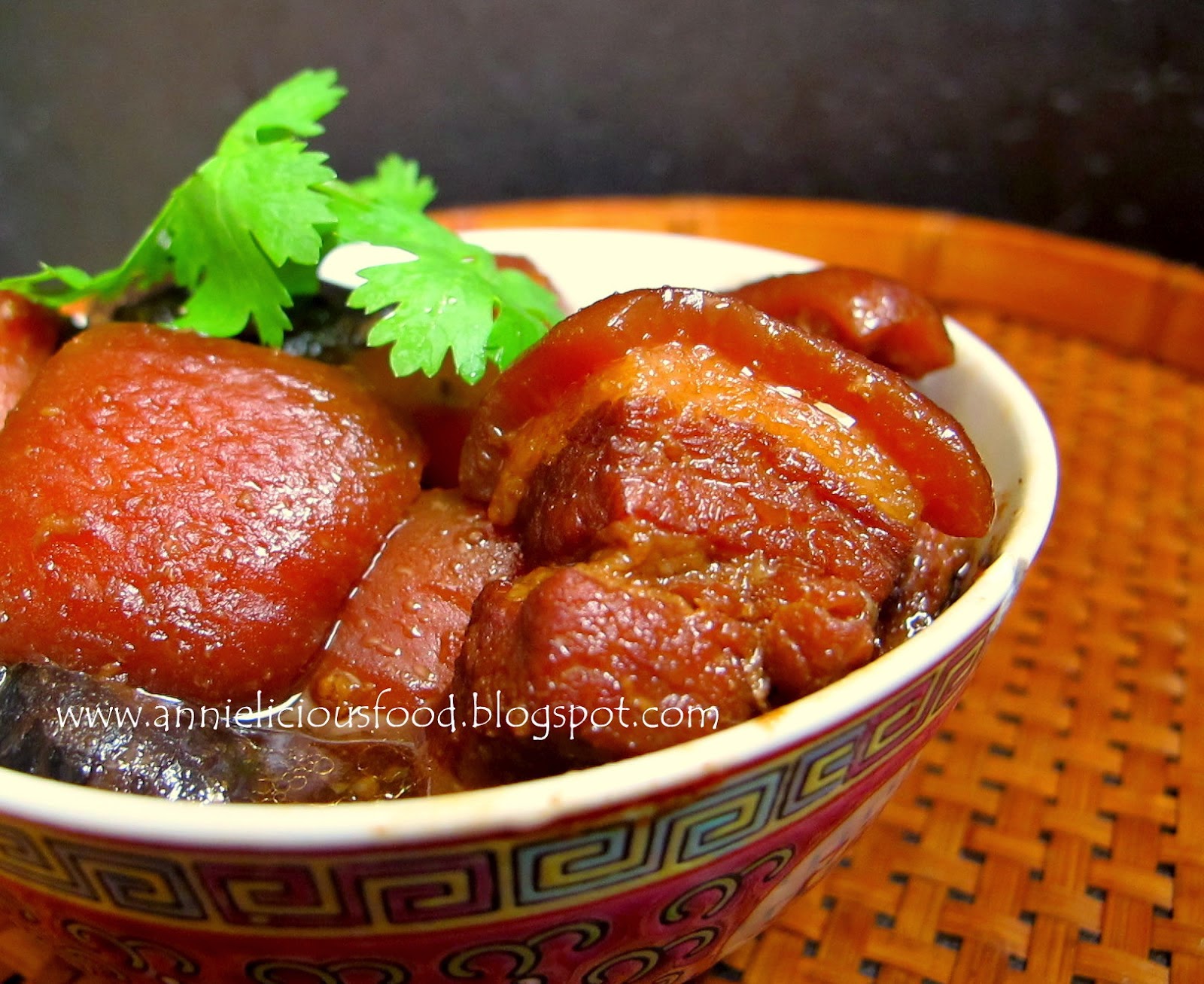Image from Annielicious.
Although my mother was never capable of making dishes using exquisite ingredients that graced the tables of the affluent, I will always regard her as a good cook. Even though she knows nothing of preparing Shark’s fin or abalone and such, I will remember her cooking—especially her Babi Pongteh.
My mother arrived in Singapore three decades ago, from Malacca, in
search of employment. She found work in manufacturing in a company producing cassette
tapes and met my father. Since her marriage, she seldom returned to her
hometown. But on the occasions we do visit her birthplace, we remember the
eating.
Her place in Malacca was surrounded by farms producing kangkong, chillies, asparagus and all
manner of popular Asian greens. She grew up eating free fresh vegetables tossed
into the wok with sambal belachan and
chilli padi. When my maternal
Grandfather was alive, he would wander into the asparagus fields—half naked,
and only dressed in a sarong—to pick the shoots for the dishes that would
welcome our arrival. He was an intuitive cook who learnt to cook like most
chefs in the older generation; he was one who learnt to cook by watching,
rather than from recipes like we do today. It may be hard for many of us to
imagine doing the following, but he made all his delicious food on charcoal and
wooden stoves under a tin-roof kitchen. Among all the dishes he made, the Babi
Pongteh was the one my brothers and I missed when he was gone. The person who
made it afterwards just did not made it the same.
It was the dish my mother tried to replicate in the modern kitchen in
Singapore. Without a doubt, it was different from the one my grandfather made.
But this particular dish is what connects my family and me to the asparagus
field of Malacca and the memories of my grandfather in his sarong. For those
who grow up in the Singapore today, the links between our country and Malacca
may not be very obvious. Yet the Babi Pongteh reminds me of this link, of the
time when Singapore was part of Malaysia, when people on both sides of the
shore shared blood ties and a common heritage.
Despite the heritage importance of the Babi Pongteh, it never fails to
make me wonder, just like the Singapore Rojak or Laksa. I find myself imagining
the moment when this dish was born. What could have been the inspiration for
this fusion dish whose tau chioh (or fermented beanpaste) speaks of its
Chinese-ness and the copious amount of onion paste, giving it a heady aroma
points so strongly to the indigenous influences it has wonderfully soaked up?
This marriage of onion and fermented bean paste created under the sultry heat
of the tropics holds plenty of promise for us. It points to something in the
atmosphere here, conducive for wonderfully delightful marriages between
unlikely elements.
So I will bring the Babi Pongteh along with me when I move out and have
a family of my own in future. It will be a precious heirloom I hold close to my
heart and make for my children. It would not taste the same as my mother’s or
my grandfather’s. That doesn’t matter. But it will remind my children, of where
we come from, especially when my future father-in-law is a great Teochew cook
and would make plenty of traditional Teochew dishes rarely seen anywhere these
days.

No comments:
Post a Comment